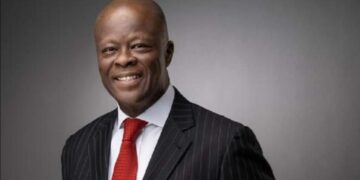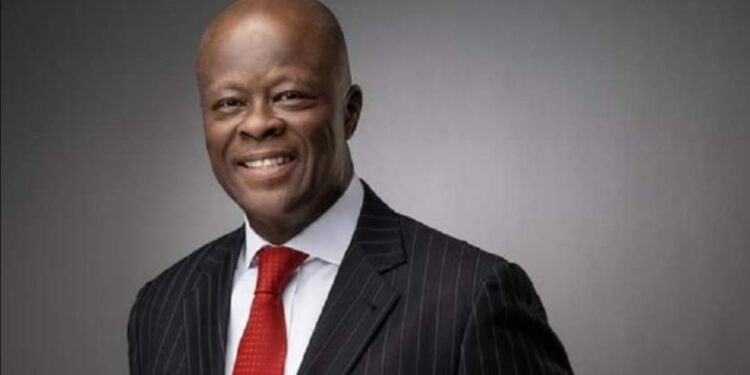By Enyichukwu Enemanna
Nigeria can no longer rely on borrowing to fund its budget, Minister of Finance and Coordinating Minister for the Economy told the Senate on Thursday.
Wale Edun spoke when he appeared before the joint Senate Committee interrogating the 2024-2026 Medium Term Expenditure Framework (MTEF) and Fiscal Strategy Paper.
The committee is chaired by Senator Sani Musa (APC) Niger State, North Central Nigeria.
The immediate past administration of President Muhammadu Buhari has been accused of engaging in borrowing spree, stockpiling a mountainous debt profile for his successor, Bola Tinubu.
The Debt Management Office (DMO) says Nigeria’s total public debt rose to N87.38 trillion in the second quarter (Q2) of 2023, recording an increase of 75.29 percent.
This represents a N37.53 trillion increase in total public debt, compared to the N49.85 trillion reported at the end of the first quarter (Q1) of the year
The National Security Adviser (NSA) Nuhu Ribadu had recently said Tinubu inherited an empty treasury upon assuming power in May without pointing accusing finger on Buhari.
Tinubu and his predecessor are from the political family of All Progressives Congress (APC) which took over power in 2015.
During his appearance before the Senate on Thursday, the finance minister told the joint panel that the best way Nigeria can fund its annual budgets is to spend more money on infrastructure.
“We have an existing borrowing profile. Our direction of tariff is to reduce the quantum of borrowing or intercepting deficit financing in the 2024 budget,” he said.
He stated further, “Clearly the environment that we have now, internationally as well as nationally we are in no position to rely on borrowing.
“They are in the process, sacrificing that immediate goal for compacting their economies, or at least contracting the money supplies and pushing up the interest rates and of course high-interest rates and investments don’t go together.
“What is left for us to access those funds are expensive so it is the last thing that we must rely on. As we know we have all the figures and debt servicing and cushioning 98 per cent of government revenue.
“The last thing you can think of is to pike on more debts. The government needs to not just maintain its activity, it needs to spend more. If you look at government spending, if you look at the budget as a percentage of GDP, ours is one of the lowest being 10%, even Ghana is at 25%, and rich ones they are 50%.”
The Executive Chairman, Federal Inland Revenue Service (FIRS), Zacch Adedeji, and the Director General of the Debt Management Office, Patience Oniha appeared along with the Minister before the Senate.




































